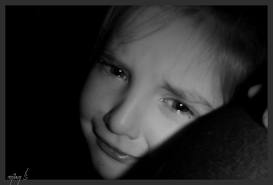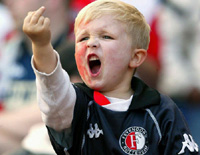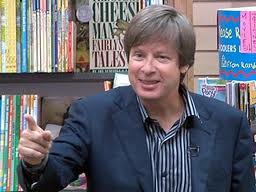Forming the Inner Adult
Maturity is Getting out of Drama
by Stephen Cocconi © 1996-2017
 Everyone I’ve ever met has a “Wounded Inner Child (WIC).” This, judging from the extremely immature and irrational ways that “grown-ups” treat each other, no matter what strata or cross-section of society you are taking about. Humankind is in need of real healing. It begins when we grow out of the WIC, evolving the attributes of the “Magical Child” (awe, wonder, presence) into the wise and compassionate “Inner Adult.”
Everyone I’ve ever met has a “Wounded Inner Child (WIC).” This, judging from the extremely immature and irrational ways that “grown-ups” treat each other, no matter what strata or cross-section of society you are taking about. Humankind is in need of real healing. It begins when we grow out of the WIC, evolving the attributes of the “Magical Child” (awe, wonder, presence) into the wise and compassionate “Inner Adult.”
Let’s not reprimand the “inner child” concept. But are you defeating your own long-term healing and accomplishments? It is absolutely necessary that we understand that the reverse form of inner child abuse is self-indulgence. Most people mistake it for healthy self-care. In the forum of modern American dialogue, concerns about childhood obesity and indolence are near the top of the list regarding the uncooperative nature of many young people. They are becoming Brats! Many have used the excuse of the WIC to unleash what I call the “Bratty Inner Child (BIC).” The BIC is defiant, rebellious, and self-righteous. These characteristics then masquerade as confidence and labeled as personal power. You can identify the BIC because its statements and decisions are charged with emotion: usually fear or anger. Also, the phrasing or actions of the BIC are always defensive and blaming. We’ve all seen business people, teachers, and politicians act in these very ways. We of the healing arts are not exempt. Inside of a fully grown body, the BIC is usually protected by or fights with the “Inner Parent.” Both of them, needing to be right, will present a facade to the world that looks in control. When in the presence of the Parent or BIC, you will feel ill-at-ease or threatened instead of inspired. Much is written about the nature of “inner child”, but very little about it’s offspring the Inner Adult. Presented here is a list of those attributes.
is defiant, rebellious, and self-righteous. These characteristics then masquerade as confidence and labeled as personal power. You can identify the BIC because its statements and decisions are charged with emotion: usually fear or anger. Also, the phrasing or actions of the BIC are always defensive and blaming. We’ve all seen business people, teachers, and politicians act in these very ways. We of the healing arts are not exempt. Inside of a fully grown body, the BIC is usually protected by or fights with the “Inner Parent.” Both of them, needing to be right, will present a facade to the world that looks in control. When in the presence of the Parent or BIC, you will feel ill-at-ease or threatened instead of inspired. Much is written about the nature of “inner child”, but very little about it’s offspring the Inner Adult. Presented here is a list of those attributes.
The Adult: has the ability to make and keep reasonable agreements with themselves and others. Can forestall short-term gratification in order to achieve a long-term goal. Knows reasonable proportional responses: i.e. doesn’t blow-up when the something small happens. They can differentiate between his/her responsibilities and those of others. Fears are based upon real world concerns, and not inner dialogues or possible scenarios of the past. The can set boundaries and knows when to say no. Knows when risk is appropriate. Relies on internal authority and ethics when making decisions. Confronts issues with a willingness to compromise a position if appropriate and yet can stand for principles that are genuinely felt. Is willing to change a position when new, clearer, more accurate information or experience becomes available.
They can change their behavior when a strategy continues to produce the same negative result. Is willing to have their emotions and doesn’t self-judge inappropriately. Is capable of doing things for others without feeling resentful, obligated, or for specific personal gain. Takes reasonable care of their body and does not overly indulge or rigidly discipline themselves. Knows how to accomplish tasks within a reasonable period of time. Can put their own feelings aside when another is in greater turmoil or need. Knows to communicate pertinent information without getting into story or defense about it. (ex. a building catches on fire – the adult says “there is a fire.” The child runs in and says “I didn’t do it” even before they mention the blaze.) Is genuinely kind and respectful of the rights of another human being, but does not placate, pretend, or deny their own real feelings if asked about them. Is culpable for actions they themselves do, or those that they could have reasonably prevented others from doing. This includes making reasonable and proportional amends to the other person for problems that were created due to your action.
Knows how and when to say a genuine “I’m sorry”, without making it sound sarcastic or cold. This means you take responsibility for portion of the problems you have caused another person. Apology means compassion for them, not pity for yourself having made a mistake. They know that indiscretions happen and while embarrassed to a degree, they are not gripped by the arrogance that shame can trick people into showing as aloofnes s or vain superiority. Hence, their dignity and inner moral compass, cause them to acknowledge suffering they have caused to someone else.
s or vain superiority. Hence, their dignity and inner moral compass, cause them to acknowledge suffering they have caused to someone else.
But most of all, a healed adult has a sense of humor about life, themselves, and the dramas that we create for ourselves. While taking life seriously, their mood is one of most often curiosity, concern, and a knowledge that making decisions is best done from a calm place. From here all things are possible.
